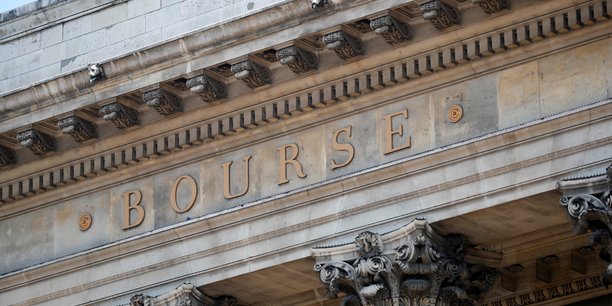Janet Yellen’s warning issued yesterday in the Wall Street Journal and its threat of cascading financial catastrophes if the Republican opposition does not vote to raise the debt ceiling of the United States makes investors on both sides of the Atlantic shudder. And the Paris Bourse, which was expected to fall sharply on Monday, did indeed stumble from the start. The increase in short-term uncertainties, both in monetary and economic terms, has put a chill on the markets, not to mention the dreaded repercussions of a possible bankruptcy of the Chinese real estate giant Evergrande.
The CAC 40 fell by 1.81% around 9:30 am, and the drop deepened to reach 1.91% around 9:50 am. TO 10 am, the flagship index of the Place de Paris plunges to -2.21%.
The trend was announced forty minutes before the opening of the session, with the drop of 1.19% of the futures contract of the star index CAC 40. But as a reminder, Friday already, the Parisian index had ended down 0.79% due to fears over the economic situation and inflation.
Shutdown and “monetary questions”
“European indices should open sharply lower this morning in the wake of the close of American markets impacted by monetary questions two days before the Fed meeting, the fear that there may be a ‘shutdown’ [la paralysie de certains services publics, Ndlr] of the American federal government and finally that the Evergrande affair is not as local as some would like to hear it “, indicates John Plassard, head of investment at Mirabaud.
U.S. Treasury Secretary Janet Yellen strongly advocated Sunday for Congress to raise the debt ceiling at the risk of causing “a historic financial crisis”. Last week, the Treasury Department indicated that the United States would be strapped for cash “during the month of October”.
“Raising the debt ceiling was once an exercise in automatic approval, but in a polarized United States it is no longer the case,” observes Jeffrey Halley, analyst at Oanda.
Reduction in asset buybacks? Probably not before November
This week will also be dominated by the decisions of global central banks, led by the Federal Reserve, but also countries like Norway, Japan, the United Kingdom and Switzerland.
“Wednesday’s Fed meeting is also a risky short-term event,” underlines Mr. Plassard.
Even though members of the Fed’s Monetary Committee will want to wait until the November meeting before announcing the gradual decrease in asset purchases, which had supported the economy during the crisis linked to the pandemic.
The Evergrande risk and the fear of a “domino effect”
Investors will also be watching closely the threats to Chinese real estate giant Evergrande, on the verge of bankruptcy, which could have consequences for the country’s economy, the group, whose debt amounts to more than 300 billion dollars, to pay Monday and Thursday part of the interest on loans and bonds.
Evergrande is a juggernaut in real estate and construction, two sectors “essential for Chinese growth”, which represent 13% of the GDP, notes the sinologist Jean-Louis Rocca, researcher at Sciences Po.
Evergrande says it employs 200,000 people and indirectly affects 3.8 million jobs in China. Any bankruptcy would have considerable consequences with a “domino effect” on the economy of the Asian giant.
(with AFP)


